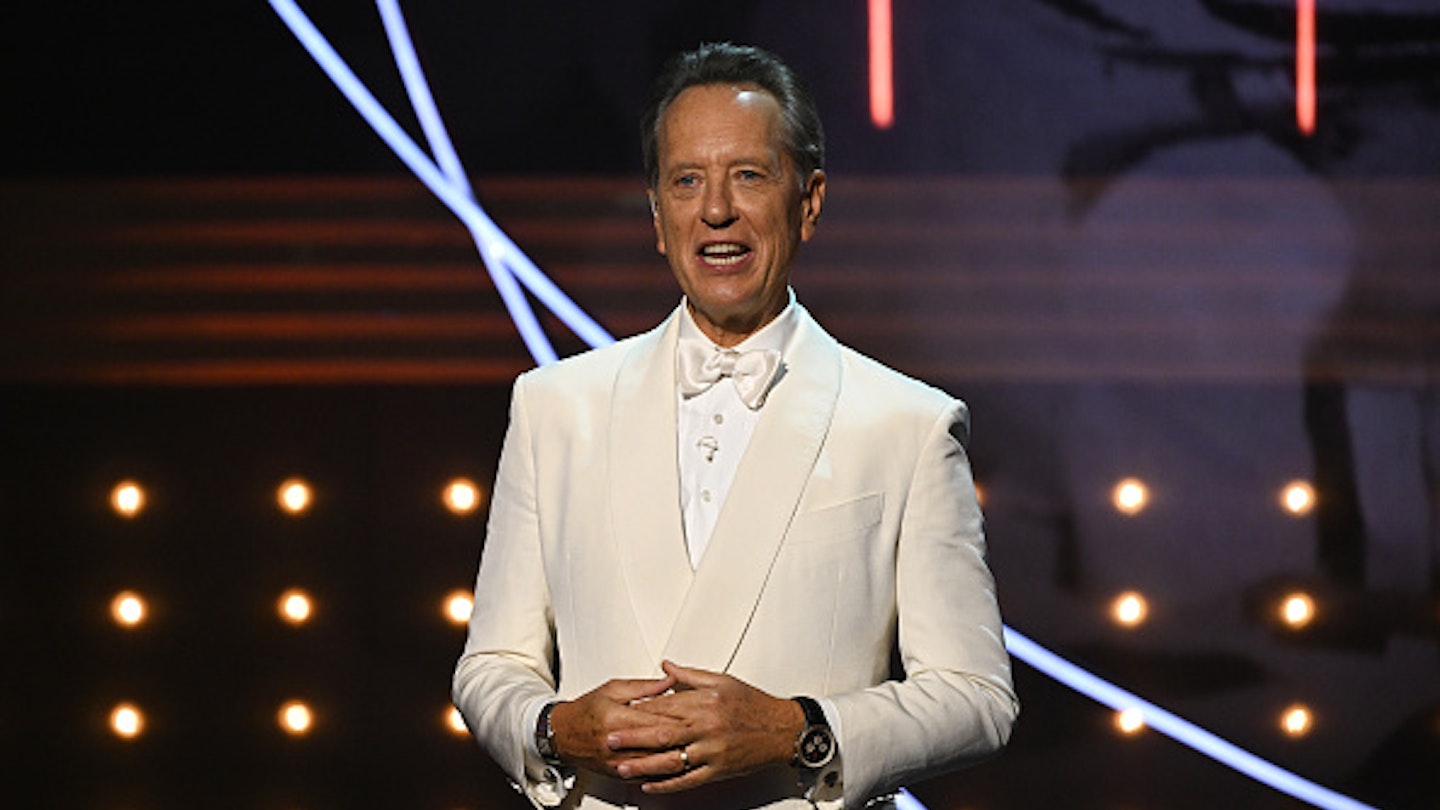Conversations around loss can be difficult, confusing and all-consuming – grief can be different for everyone, but our understanding of it improves every time we talk about our experiences of it. And today, actor Richard E. Grant has contributed his own take on grief after discovering that his mother had passed away, and the complicated nature of the situation is something so many of us can relate to.
Posting his message to Twitter, he began: ‘During a filming break this morning I saw that I had eight missed calls from Africa and knew weirdly why, which proved to be that my 93-year-old mother died this morning. We had an incredibly complicated relationship. And she was somebody that for me anyway, emotionally withdrawn and withheld her approvation or approval of anything.’
We often idealise those who we have lost, but Richard was careful to voice elements of his mother’s personality that caused him pain, and the impact that had on him.
‘So nothing was ever quite good enough, but what that proved to be was a great motor for ambition and determination to try and prove yourself be the best you possibly can, and ironically whatever she did she demanded and got applause, approval from everybody around her, including me.'
He goes on to describe a rather painful-sounding experience after his wife Joan Washington had passed away, when he went to visit his mother.
‘I went to stay with her for a couple of weeks, six weeks after my wife had died, with Covid restrictions being lifted, and she sent me a very terse email at the end of the trip, saying, “I regret to say your visit was an absolute disaster, we only have two things in common, books and classical music.”’
After observing the particularly unpleasant exchange, Richard E. Grant went on explain how this dynamic impacted the way he parented, and how he endeavours to be there for his children in turn. He has one daughter with Joan, Olivia (34), and a stepson called Tom (41).
‘So whereas she was very physically untactile, I've gone (to) the opposite extreme and been a very tactile and loving father and husband I suppose in response to that,' Richard said.
His final remarks were the ones that hit hardest. Richard spoke of the ‘resignation’ he feels at his mother’s death but above all ‘gratitude’.
‘Do I feel sadness that she has died? I feel resignation more than anything. But most of all gratitude for having given me life,' he concluded.
On top of the value and beauty in sharing your grief experience with others, and the ways in which it can help with others’ personal pain, Richard’s insistence on being open about the complications within his grief and his relationship with his mum is so refreshing.
It can be easy to feel guilt or shame if our grief isn’t clear or attached to the best parts of our loved ones. Maybe we are grieving an estranged family member, or an old friend we lost touch with, and the traditional rules of grief don't apply. It’s not always a straightforward feeling, to mourn someone, and Richard’s openness in acknowledging this is an inspiration.
And above all, his decision to choose ‘gratitude’ over resentment or any other emotion when it comes to his complex loss is one that we could all perhaps try to adopt, also. To ask ourselves how we can be thankful to the person we’ve lost, in the face of our grief, is an honourable way to process our pain and rebuild.
